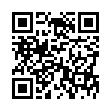Single Time Machine Backups
Tired of Time Machine running all the time? You can turn it off in the Time Machine preference pane, but still initiate a single backup by choosing Back Up Now from Time Machine's menu bar icon. Of course, your backup is much less likely to be up to date, but Time Machine won't be taking any resources while you're trying to work.
Submitted by
Richard Kane
Recent TidBITS Talk Discussions
- Alternatives to MobileMe for syncing calendars between iPad/Mac (1 message)
- Free anti-virus for the Mac (20 messages)
- iTunes 10 syncing iPod Touch 4.1 (2 messages)
- Thoughts about Ping (16 messages)
Published in TidBITS 909.
Subscribe to our weekly email edition.
- Security Update 2007-009 1.1 Released with Important Fixes
- Update Fixes Unresponsive Laptop Keyboards
- MacTech Benchmarks Parallels Desktop and VMware Fusion
- TidBITS Events at Macworld SF 2008
- Intuit Alienates Mac Users With QuickBooks Fiasco
- The iPhone and the Googlewhackblatt
- The Trick to Adjusting Dates in iPhoto Calendars
- Amazon Delivers Like It's 1999
- Hot Topics in TidBITS Talk/07-Jan-08
Think Secret Shuts Down in Wake of Apple Settlement
The long-running legal battle between Apple and rumor site Think Secret is now over, with the two agreeing to what's described as an "amicable settlement" that "results in a positive solution for both sides."
For Apple the positive solution can be only that Think Secret will stop publishing. For Think Secret publisher Nick Ciarelli, the positive solution is likely that Apple stops suing him. It's entirely possible there are other terms to the settlement, but the only other public detail is that Ciarelli says he never revealed his sources.
On the downside, Apple comes off looking like a bully, particularly given that at the time the suit was filed, Ciarelli was a 19-year-old Harvard student. And unless Ciarelli was looking to get out of Mac rumor mongering anyway, being forced to shut down a site receiving over 300,000 monthly visitors (according to Quantcast) wouldn't seem like a good thing.
According to CNet, Apple originally sued Think Secret three years ago to get an injunction against the further release of trade secrets and to learn the site's sources for an article (via the Wayback Machine) that revealed details about the Mac mini in advance of its Macworld Expo release two weeks later. The suit likely hinged on whether Apple could prove that Think Secret knew its source was violating an NDA, that Think Secret had induced the source to reveal confidential information, and that Think Secret's actions caused the source to breach his or her NDA with Apple. That may have been tough to prove, or even impossible, but the fact that the suit dragged on as long as it did shows that it wasn't clear cut on either side. Think Secret was defended by Terry Gross of Gross & Belsky LLP.
Response to the settlement announcement among Web publications ran nearly universally to damning Apple and lionizing Nick Ciarelli. For instance, Mike Masnick, on the Techdirt blog said, "It's really a shame that Apple even decided to pursue this vendetta, and the fact that it ends with Think Secret being shut down completely is a travesty." And on TechCrunch, Duncan Riley praised Ciarelli for taking the moral high ground of refusing to reveal his sources.
I'm of two minds about the entire situation. With regard to the specific case, I distinctly agree that a company shouldn't be able to compel a journalist to reveal sources. And although it may have been less obvious back in 2005, I strongly believe that bloggers and purely Internet-based publications should receive the same protections as traditional reporters (at least under California law; a U.S. federal shield law protecting journalists is still before Congress). So on principle alone, it's too bad Ciarelli agreed to the settlement.
On the other hand, Apple has all the right in the world to be angry about widely disseminated rumors about forthcoming products, whether the rumors are correct or not. If the rumor is right, customers stop buying the current product to wait for what's coming. (That's a perfectly rational thing to do as an individual customer, but clearly harmful to Apple when spread to tens of thousands of potential customers.) Incorrect rumors also damage Apple by setting false expectations that the company then "fails" to live up to. (That's what happened back in 2004 when rumor sites, including Think Secret, pegged the price of what would be released as the iPod mini at about $100. When Apple released the 4 GB iPod mini at $249, the higher price generated negative publicity that may have affected early adoption of the iPod mini.)
Ideally, Apple would have figured out a more effective approach to solving the problem with leaked information than suing Think Secret, given the reputation hit the suit caused. But at the same time, it's hard to feel sorry for Think Secret. By revealing Apple's trade secrets, Nick Ciarelli was playing with fire, and he now has the scorched fingertips to prove it.
 WebCrossing Neighbors Creates Private Social Networks
WebCrossing Neighbors Creates Private Social NetworksCreate a complete social network with your company or group's
own look. Scalable, extensible and extremely customizable.
Take a guided tour today <http://www.webcrossing.com/tour>

